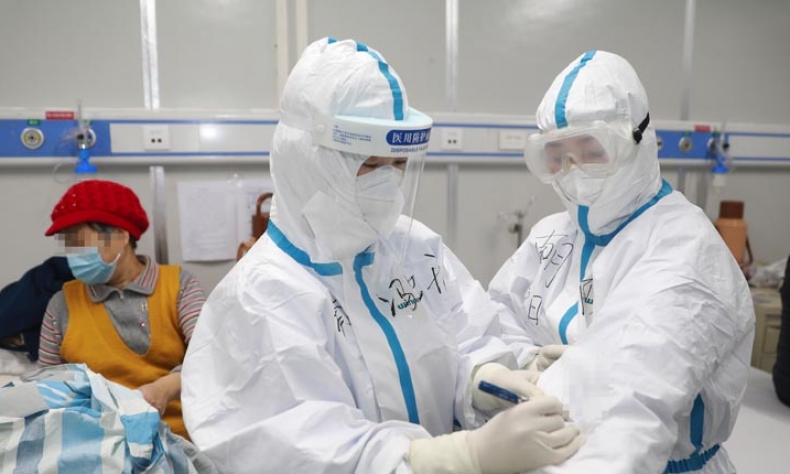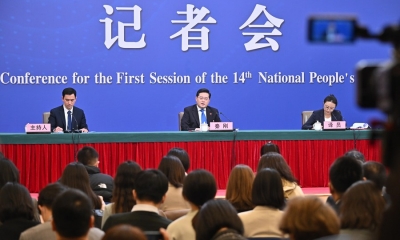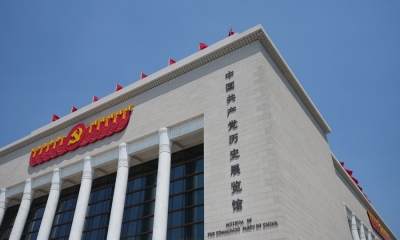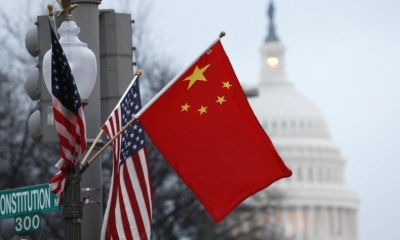China’s Efforts at International Cooperation to Control the COVID-19 Outbreak

The COVID-19 epidemic is global crisis, one which requires solutions based on international cooperation on the multinational, national, and local level, based on the free flow of scientific information among these actors.
Although COVID-19 first broke out in China, it is, in fact, a global challenge. This infectious disease spread demands international collaboration in order to contain it.
China has taken the initiative to strengthen its cooperation with the international community. The nation’s strong quarantine measures and information disclosure have won the respect and support of the international community, including the World Health Organization (WHO). China has made great efforts to refute the assumption that information coming from China cannot be relied upon.
WHO Director-General Tedros Adhanom Ghebreyesus recently noted that China’s preventive and control measures against COVID-19 are both unprecedented and effective, and have prevented the spread of the epidemic to the greatest extent. Western leaders such as French President Emmanuel Macron expressed his solidarity with China’s government and the Chinese people’s efforts to fight the epidemic. He also expressed admiration for China’s timely and effective measures and the high degree of openness and transparency it has shown.
Even US President Donald Trump and Vice President Mike Pence – neither anything close to friends of China – have praised China for both its efforts and transparency. Trump specifically declared that China will be successful in stopping COVID-19.
International assistance such as medical supplies and researchers poured into China to assist Chinese medical personnel and researchers. Republic of Korea President Moon Jae-in said on February 3, “China’s difficulty is also ours.” One heartening story immediately comes to mind. Despite a long and troubled history between China and Japan, the Japanese government and its people sent protective suits, goggles, rubber gloves, and millions of face masks. The Japanese delivery of masks to China was accompanied by a poem that expressed the idea that China and Japan share the same “gentle breeze and bright moonlight.”
International support for China’s plight has helped to cement ties with other countries. Canada sent medical equipment and did not close its doors to Chinese passport holders.
Countries ranging from Russia, Israel, and Pakistan made offers of assistance. The European Union and the African Union also reached out to China. Even the United States, after some troubling fits and starts, offered assistance.
Chinese President Xi Jinping has keenly observed that while mainly relying on the strength of the Chinese people to fight the epidemic, China is very grateful for the help offered by the international community.
While there was an outpouring of support for China, even from the US, the Trump administration’s initial response gave pause for concern and underscored the need for both improved China-US relations and greater global cooperation. Chinese officials were rightly perturbed that the US initially engaged in a mindset that ran counter to its history of offering support to nations during a time of crisis. Simply stated, international cooperation is critical in combating COVID-19 given the unprecedented ease of global travel and the emergence of new diseases.
Given China’s experience with SARS, some commentators have debated the effectiveness of the nation’s public health response to COVID-19. When SARS hit, local authorities at that time sat on the extent of the epidemic for months before going public. Contrast that with the current COVID-19 epidemic.
The first evidence of the virus emerged in Wuhan in December and the nation’s authorities went public with it in January. China demonstrated that it learned the hard lessons presented by the SARS crisis, which had a propensity toward secrecy. China’s current leadership recognized that it is crucial for the international scientific community to work together and share data and research findings openly and rapidly.
Faced with a spreading epidemic, the central government responded with tremendous speed and openness. Unlike the SARS epidemic, the central authorities have handled the COVID-19 epidemic with systematic effectiveness.
International collaboration with Chinese scientists and authorities in order to eradicate the coronavirus provides a chance for both China and the world to demonstrate they can cooperate in times of a global crisis. There are both critical humanitarian and moral reasons to work together to overcome this health crisis.
This epidemic will serve to improve many aspects of public health, not only in China, but internationally and will generate new opportunities for nations to work with China to address issues of common concern.
The COVID-19 epidemic is global crisis, one which requires solutions based on international cooperation on the multinational, national, and local level, based on the free flow of scientific information among these actors
Jon Taylor is a Professor of Political Science and Chair of the Department of Political Science at the University of Texas at San Antonio
 Facebook
Facebook
 Twitter
Twitter
 Linkedin
Linkedin
 Google +
Google +







